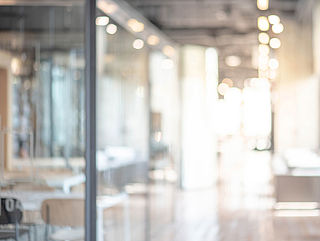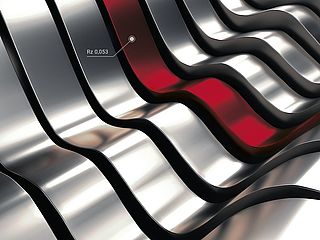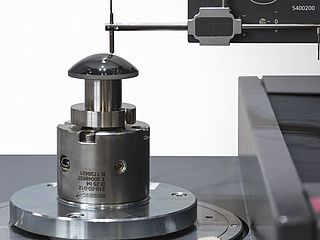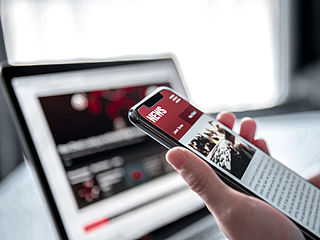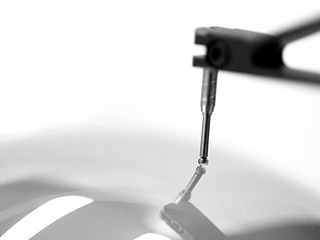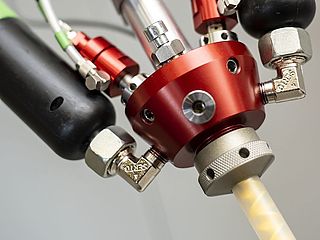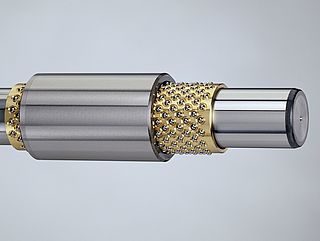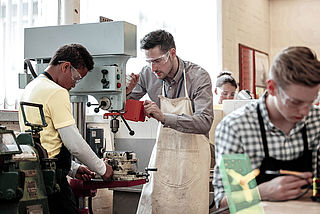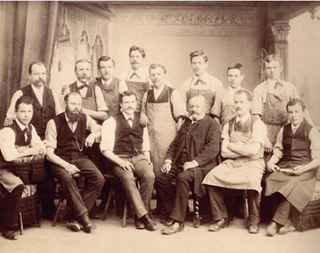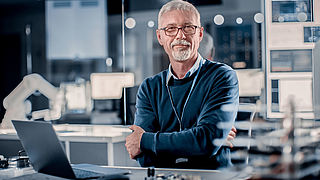Calibrate standards, setting masters and special gages at DAkkS level using a CMM

When calibrating standard measuring equipment, the traceability of the measurement results to national or international standards is common. The situation is different for drawing-based devices and gages, setting masters or other precision parts: here, many companies are often not even aware that calibration at DAkkS level is possible.
Why DAkkS calibration is important
Intensive testing combined with traceability to (inter)nationally recognized standards is worthwhile: because regardless of whether clamping devices for machine tools, setting masters for production lines or for turned parts of the highest quality – the quality of the manufactured products ultimately depends on their dimensional accuracy.
Ulrich Börner
Leiter Kalibrierlabor Mahr Esslingen
Many service providers offer the measurement of parts on coordinate measuring machines. Here, companies looking for a provider should take a close look: "With regard to the measurement uncertainty, many laboratories often do not provide any information or only state the measurement uncertainty of the measuring machine used," knows Ulrich Börner, who heads Mahr's calibration laboratory in Esslingen. However, this is only part of the measurement process: "All the influences that arise from the arrangement of the measuring points or the calculation methods are missing. These can be many times greater than the measurement uncertainty of the machine," says the expert. Such measurements are therefore unsuitable for traceability of the dimension.
Börner continues, "Companies often invest a lot of work, expertise and money in the production of their setting masters or special gages." Since a lot depends on these parts, he is convinced: "Calibration at DAkkS level is doubly worthwhile: on the one hand, to safeguard one's own investment and, on the other hand, to gain security for one's own production processes."
Calibrations on the CMM: At Mahr at DAkkS level
At Mahr, the calibration of standards, setting masters and special gages is performed tactilely on high-precision coordinate measuring machines (CMM). As one of only a few suppliers in Germany, Mahr and its Esslingen laboratory are accredited to perform these calibrations at DAkkS level. The certificate is even internationally recognized by the International Laboratory Accreditation Cooperation ILAC. With a measuring range of up to 1,200 x 1,000 x 700 mm, even large workpieces can be certified.
Partnership instead of service Performing a DAkkS calibration of drawing-based devices and gages, setting masters and standards is not at all easy for both parties involved – the client and the calibration service provider. What has to be measured is not specified by a standard, but is defined individually by the client. "This requires a lot of communication," Börner knows.
Meaningful technical drawings specify the respective measuring points and dimensions for the test. In addition, there are specifications for the alignment of the workpiece with respect to certain characteristics as well as specifications for the evaluation parameters. Mahr's metrology experts perform an individual calculation of the measurement uncertainty for each dimension determined. These complex mathematical calculations cost a lot of time, but are particularly valuable for the customer: they provide additional security for the customer's own further calculation of measurement uncertainties.
In view of these complex coordinations and processes, Börner and his staff see themselves as partners and advisors to their customers: "We are usually in direct dialog with our customers and provide intensive advice. In this way, the best concept for calibration is developed together – and thus also the best result."
Do you have any questions? Please contact us!
Claus Bohnert
Your contact for calibrations and other services.
claus.bohnert@mahr.de +49 (151) 14 73 71 76

